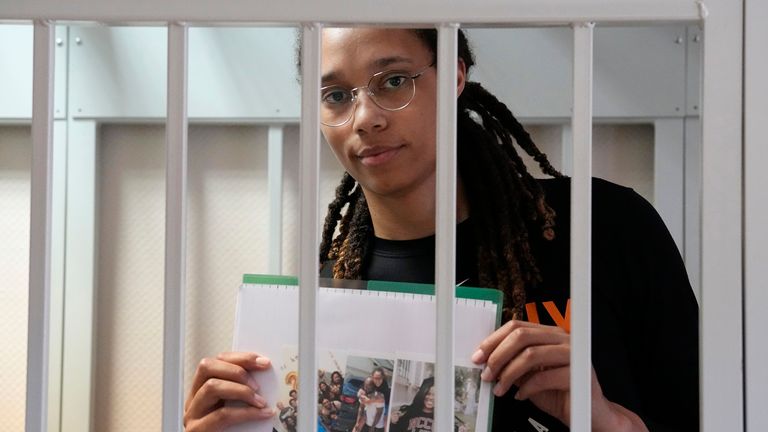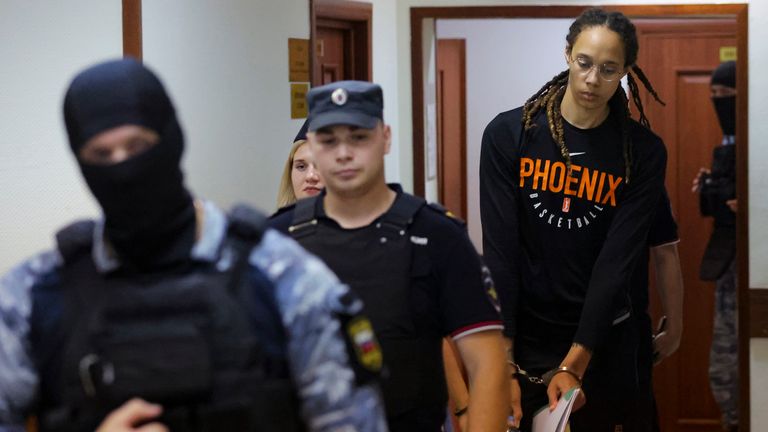Brittney Griner: WNBA star testifies that rights were not explained during arrest in Russia
Griner was arrested in Moscow in February after vape cartridges containing cannabis oil were found in her luggage. She faces up to 10 years in jail if convicted.
Wednesday 10 August 2022 12:23, UK
American basketball star Brittney Griner testified on Wednesday at her drug trial in Russia that a language interpreter translated only a fraction of what was said during her questioning and officials instructed her to sign documents without providing an explanation.
Griner was arrested at a Moscow airport in February and acknowledged in court earlier this month that she had vape cartridges containing cannabis oil in her luggage when she arrived in Russia but contends she had no criminal intent and packed the cartridges inadvertently.
During her testimony, the Phoenix Mercury standout described making a 13-hour flight to Moscow from Arizona while recovering from COVID-19. Griner said she still does not know how the cannabis oil ended up in her bag but explained she had a doctor's recommendation for it and had packed in haste.
She recalled getting pulled aside at the airport on February 17 after inspectors found the cartridges.
Along with the interpreter who provided an incomplete translation, Griner said she received neither an explanation of her rights nor access to a lawyer and was instructed to sign documents without an explanation of what they implied.
Griner explained that after hours of proceedings that she did not understand, she was allowed to hand her personal belongings over to a lawyer before being led away in handcuffs, adding that she received only a cursory translation of the allegations during a February 19 hearing when a court sanctioned her arrest.
Griner, whose detention has been authorised until December 20, faces up to 10 years in prison if convicted of transporting drugs. Her trial started on July 1, and Wednesday was her first appearance as a witness. The court outside Moscow held five previous sessions that were short, some lasting only about an hour.
During Tuesday's court session of about 90 minutes, a Russian neuropsychologist testified about worldwide use of medicinal cannabis, which remains illegal in Russia. Griner's defence team has submitted a U.S. doctor's letter recommending the basketball player use medical cannabis to treat pain.
Griner testified on Wednesday that she was suffering from pain from injuries sustained during her basketball career. She emphasised that cannabis oil is widely used in the United States for medicinal purposes and has less negative effects than some other painkillers.
A Russian Foreign Ministry spokesperson said last week that the legalisation of cannabis for medical and recreational use in parts of the U.S. had no bearing on what happens in Russia.




